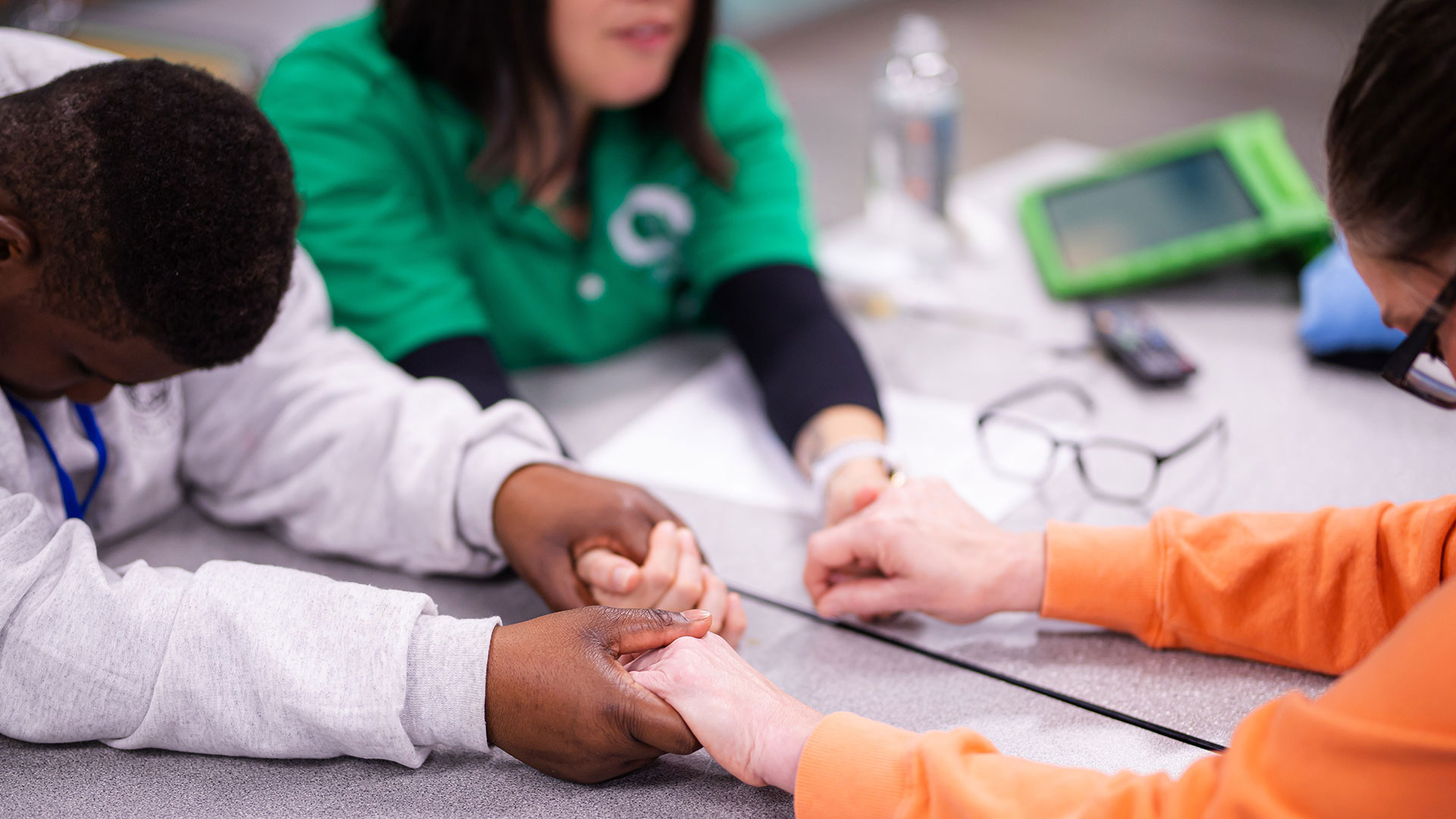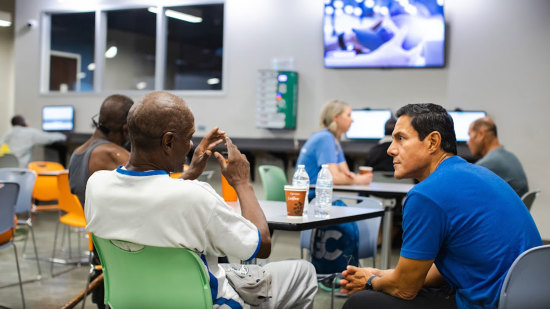We’ve all experienced it: You stop at a red light and there’s a man at your car window with a cardboard sign and a collection cup. Or you’re out for lunch and someone approaches you and asks if you can spare a few bucks. Or your kids see a tent under a highway overpass and ask why someone would go camping there.
Homelessness is a visible problem in our city. As a Christ-follower, you feel rightly convicted about the calling to help people in need, but you may have questions about the best way to do that. Is handing out money helpful? How can you make a real difference in helping people out of homelessness? Wayne and Carolyn Walker, founders of the OurCalling homeless ministry, sat down with us recently to answer those questions.
Sign up for our newsletter
Love your city all year long! Straightforward Service is a monthly email highlighting upcoming serving opportunities with Watermark’s ministry partners and direct ways to get involved.
Understanding the Homelessness Problem
If you think you’ve seen more homeless people in Dallas over the past few years, you’re right. According to OurCalling, the number of unsheltered homeless people in Dallas has increased by 500 percent in just the past five years. There are about 2,500 shelter beds in Dallas, but an estimated 10,000 people are experiencing homelessness. So, even if someone wants to go to a shelter, there is usually no room for them there.
Why are so many people homeless? The Walkers explain that there is a formula for homelessness:
No Money + No Community + A Crisis = Homelessness
It starts when someone is just barely getting by financially. Then, if a crisis happens—like a medical emergency or a job layoff—they have no money to cover the bills. If they also have no community around them to call for help, they end up on the street.
Although it is true that many homeless people struggle with addictions or mental illness, the Walkers say that is often a consequence of being homeless, not a cause. Most people are not homeless because they have an addiction or mental illness; they develop an addiction or mental illness because they are homeless.
No matter what struggles they face, it is important to remember that every person you meet is created by God in His image (Genesis 1:27). God cares about them, and He calls us to love our neighbor (Galatians 5:14)—including those neighbors who have no home.
Should You Give Money to a Panhandler?
Wayne has interviewed hundreds of panhandlers over the years to find out what they do with the cash they are given, and he says the money is used for “nothing good.” “A lot of the money passed out car windows supports sex trafficking and drug trafficking,” he explains. “It pays for a lot of prostitutes and a lot of drugs.”
That doesn’t mean you can’t give cash to someone on the street if the Holy Spirit prompts you to. However, know that you are probably not solving their problems, and you might even be contributing to those problems.
The goal should be to help people escape homelessness, not just make them more comfortable with being homeless. Giving money is a part of that effort, but it is better to donate to organizations that are working to solve the problems and get people off the streets. For example, instead of enabling an addiction by handing out cash, you can help fund an addiction treatment program for someone who wants to get well.
How to Respond When Someone Asks You for Money
So, what should you do when someone on the street asks you for money?
One option is to simply say, “I don’t have any money to give you.” Even if you do have some cash in your purse or pocket, that doesn’t necessarily mean that money is available to give to them. It may be intended to provide groceries for your own family, or to give to a church or charity. When your money is designated for a different purpose, then you truly don’t have extra cash to hand out to a stranger.
If you are giving money to an organization that helps the homeless, you can tell them that. “I give money to an organization here in town to make sure they can help you with your needs. Here’s where you can find them.”
It is also helpful to have the free OurCalling app installed on your phone. With the app, you can quickly look up nearby places that provide things like free meals, housing, or medical care. You can then point the person to those resources to get real help.
What to Do if You See a Homeless Encampment
If you see a roadside tent or other place where unhoused people are staying, you can again use the OurCalling app. Click on “Identify,” snap a photo, and mark the location on the map. OurCalling will then send out a search and rescue team to help anyone in that camp.
The Walkers suggest that you do not approach the camp yourself—partly because “you never know what you are going to get,” but also because search and rescue teams are much better equipped to provide help. “If you drive by and see a fire, you’re not going to get out and run in the house. You’re going to call the fire department, because they are the professionals,” explains Wayne.
Make a Difference Through Serving
Besides donating money to organizations, you can make a real difference by serving with them. As Carolyn explains about OurCalling, “We don’t just create opportunities for people to serve; we cannot do what we do without volunteers.”
The Walkers point out that anyone can find a place to serve that fits their comfort level and capabilities. There is a wide range of ways you can serve, from being on the front lines with OurCalling’s search and rescue team to preparing meals behind the scenes. All of it is important to the mission, and it all adds up: in just the first five months of 2023, OurCalling has helped well over 500 people get permanently off the streets.
You can learn all about serving opportunities by attending the New Volunteer Orientation at OurCalling. Even if you want to serve somewhere other than OurCalling, attending orientation there will help you better understand the problem of homelessness in Dallas and the best ways to help.
You can find many opportunities to serve your neighbors, at OurCalling and elsewhere, through the Love Our City page.



